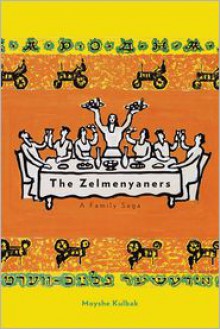
This is an entertaining satire, an episodic novel featuring a Jewish extended family living in Minsk in the early 1930s, and published contemporaneously as a serial, though not translated to English until long after the fact. Four brothers, their wives, adult children, and various other relatives all live together around a central courtyard, from which they watch rapid changes in their world, from the arrival of electricity to Soviet doctrines that distance the younger generation from their Jewish roots. Interestingly, although written in Belarus under Communist rule, the book seems to neither support nor oppose the regime; the young people’s enthusiasm is tempered by an imperfect reality, but the disorientation of the older generation is portrayed humorously. Perhaps, in a rare example for Communist-era literature still read today, the author intended to take no political position, and just poke fun at a traditional family with the political reality as a backdrop.
And it’s an enjoyable book, humorous and easy to read, with short chapters and a fair bit of dialogue. After reading the first half I would have given 4 stars, but the second half muddles the timeline and doesn’t add much in the way of new ideas or plot elements. It’s an ensemble cast, but many of the characters stand out clearly and I soon came to feel some affection for them. I was a little uncomfortable with the way the female characters are overall portrayed unsympathetically, but then I’m not sure this was always intended; Tonke, for instance, the most dogmatic of the family, is apparently an outright villain in the eyes of many reviewers, but a Soviet audience may have viewed her quite differently. I’m sure plenty of the satire went over my head; the introduction provides some interesting insight, though as usual, is best saved until after finishing the book if you’d rather avoid spoilers.
At any rate, this is overall an enjoyable and accessible book; you don’t need a lot of background to see much of the humor in it or to enjoy reading about the Zelmenyaners’ lives and foibles. The translation is also well-done, with the helpful inclusion of the occasional explanatory footnote.


 Log in with Facebook
Log in with Facebook 







